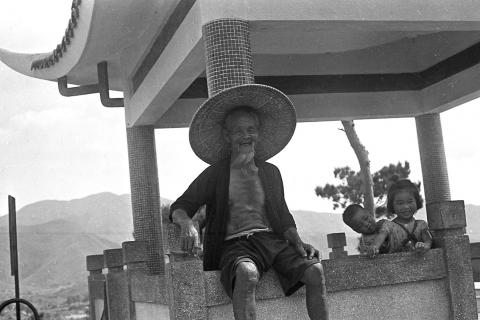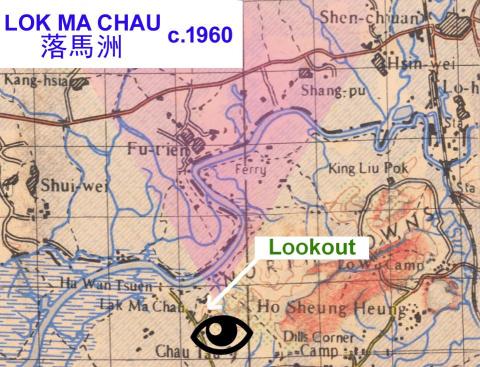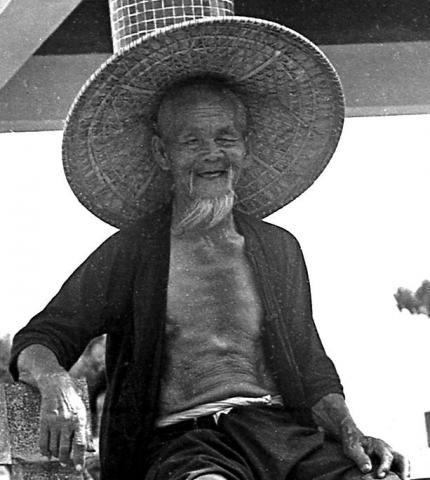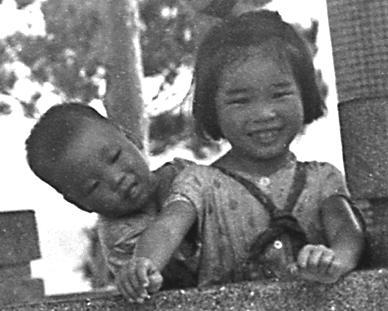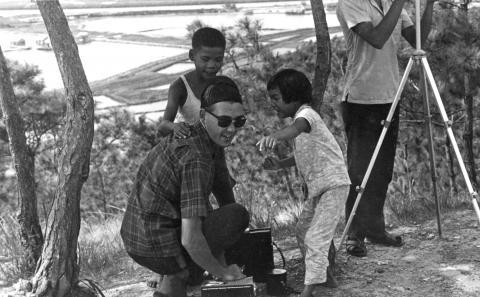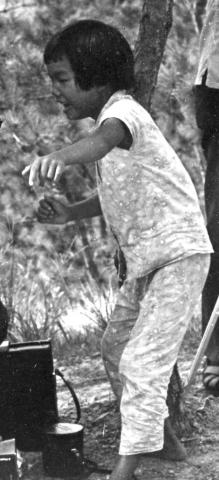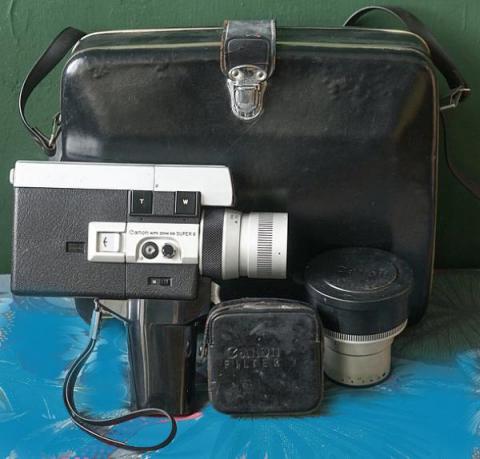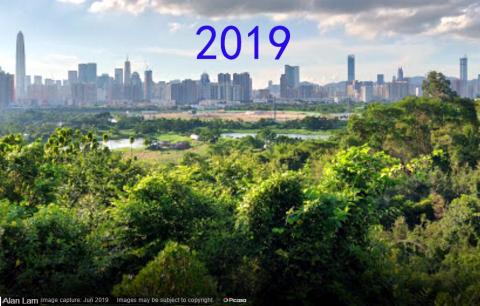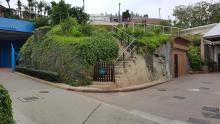Lok Ma Chau – Hong Kong’s Most Photographed Man ?
Primary tabs
Lok Ma Chau was for many decades considered as an essential place to visit on the New Territories ( N.T.) tourist trail. Almost every tourist to Hong Kong , newly arrived residents and visitors would be driven on the circular loop around the N.T. clockwise or counter-clockwise depending on preference. This would comprise the Castle Peak coastal road from Kowloon, then going inland passing Ping Shan (with a quick stop to see the Tsui Sing Lau pagoda ) to the market town of Yuen Long. Here a stop was usual to see the open-fronted shops and perhaps enjoy refreshments or take lunch in a nearby Chinese restaurant. The tourists would then continue northwards and usually turn off the Castle Peak Road just past San TIn, heading to the Lok Ma Chau Lookout on a small hillock. Visitors would probably have their first experience of peering across the border into Chairman Mao’s then mysterious “Red China”.
A small modern concrete pagoda- style shelter provided refuge from strong sunshine or rain. Here one would be greeted by “Lou Baak” (Old Uncle) and a posse of grandchildren with the youngest girl carrying a yet even younger brother strapped to her back . They would soon make their intentions quite clear ; “Takee picture one Dollah” as soon as they saw a camera. On top of this you would be bombarded with offers of rattan fans and bamboo or silk hats, and if you politely declined one would be pushed on your head and the priced reduced progressively from $10, to $5 or finally $3 for a simple straw hat.
A retired police friend of mine, who during that era was posted to the Frontier Division told me this family came from the nearby village of Ha Wan Tsuen below the hill. Lok Ma Chau police station was a little higher up the road from the Lookout Point. I’m not sure if he was joking when he claimed the police tolerated this slight harassment of tourists because one of the older boys would run up the hill and warn the officers inside if a police jeep was seen approaching because this might be conveying a senior officer on a surprise inspection visit. This would allow just enough time to quickly tidy up the station report room , hide any empty San Miguel bottles and make sure the constables had put the mah-jong tiles away.
In the photo above, (taken in 1966) ‘Chinarail’ is struggling to set up his then brand new Canon Zoom 518 Super8 cine camera with a detachable telephoto lens. When assembled, in order to keep the heavy camera steady, it required mounting on a sturdy tripod which one of his friends can be observed setting on the left of the photo. While doing this I had a silk cap thrust onto my head followed by “Ten Dollah’’…. by the boy, while his sister pointed her hand towards the still camera my other friend was holding as he too, was assailed for ‘One Dollah”. I seem to recall they got their dollar but I never bought that hat.
Having got my cine-camera gear up and running, I then filmed the duck farm ponds and across the Shum Chum River. In the distance is a cluster of buildings can be seen which I suggest was Futian (“ Fuk-Tien” ) village.
Above is the type of cine camera used by Chinarail on that day in 1966. Still available as collectors items from used camera dealers.
This cine film has survived. I have over one hour’s worth of Hong Kong scenes taken 1966-1967. Regrettably the image quality of old 8mm cine film is badly wanting but as they say : “Ho gwoh mo” (better than nothing). The HK police clips which I took were posted on YouTube some years ago and one segment has already been viewed 45,000 times. The remainder of this film is still waiting. Some years ago, it was transferred from cine film images to VHS video tapes. This caused some lack of clarity. Just recently this has been converted to digitized images which I now have saved on my PC. Step by step, I plan to split this up and post the short sections on YouTube.
If you want to see the cine film taken that day in the images above , CLICK HERE ( there is no sound) on this YouTube link.
